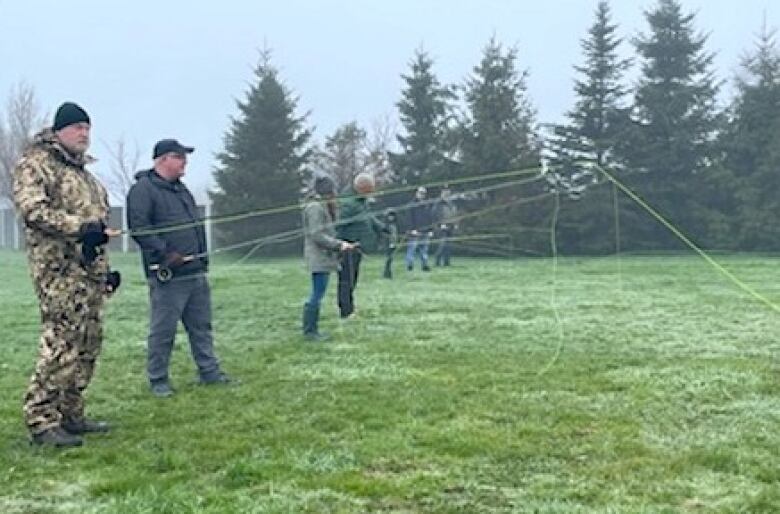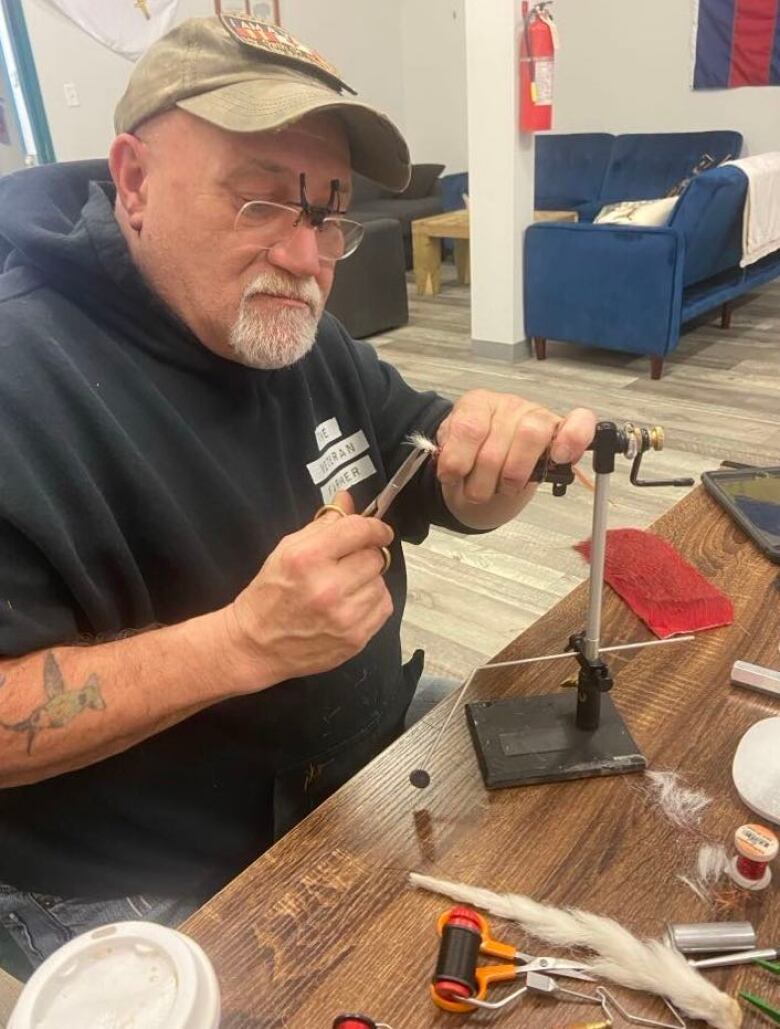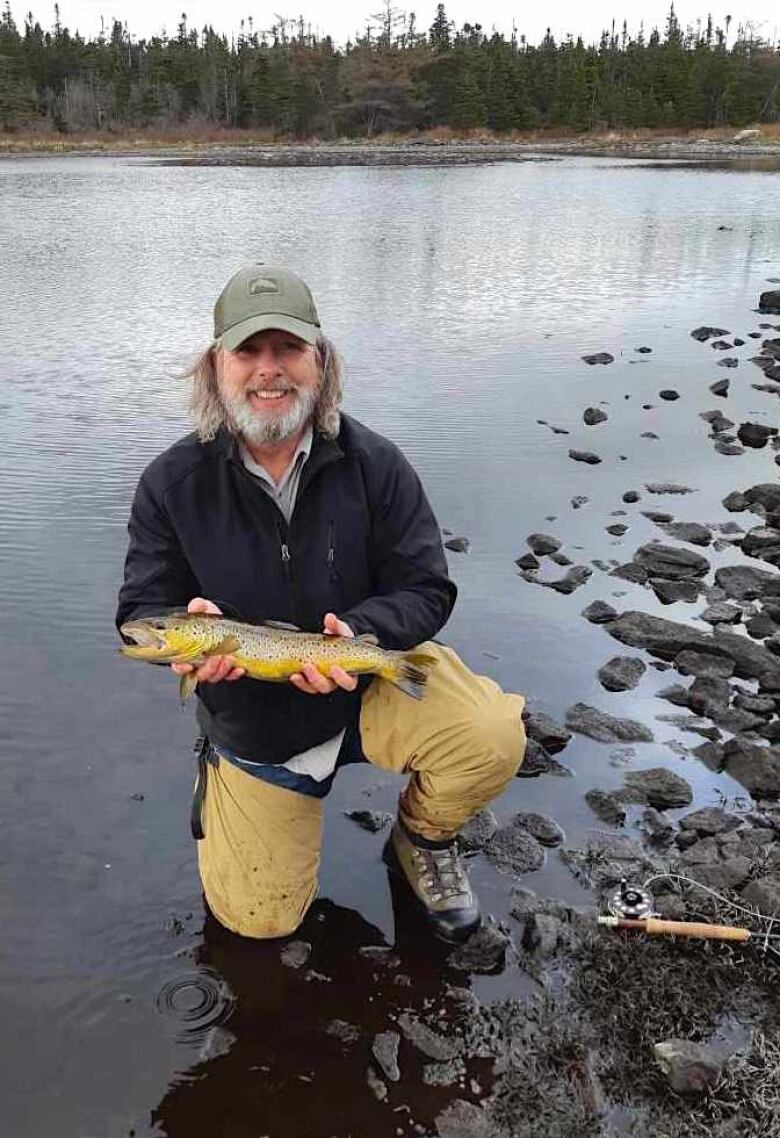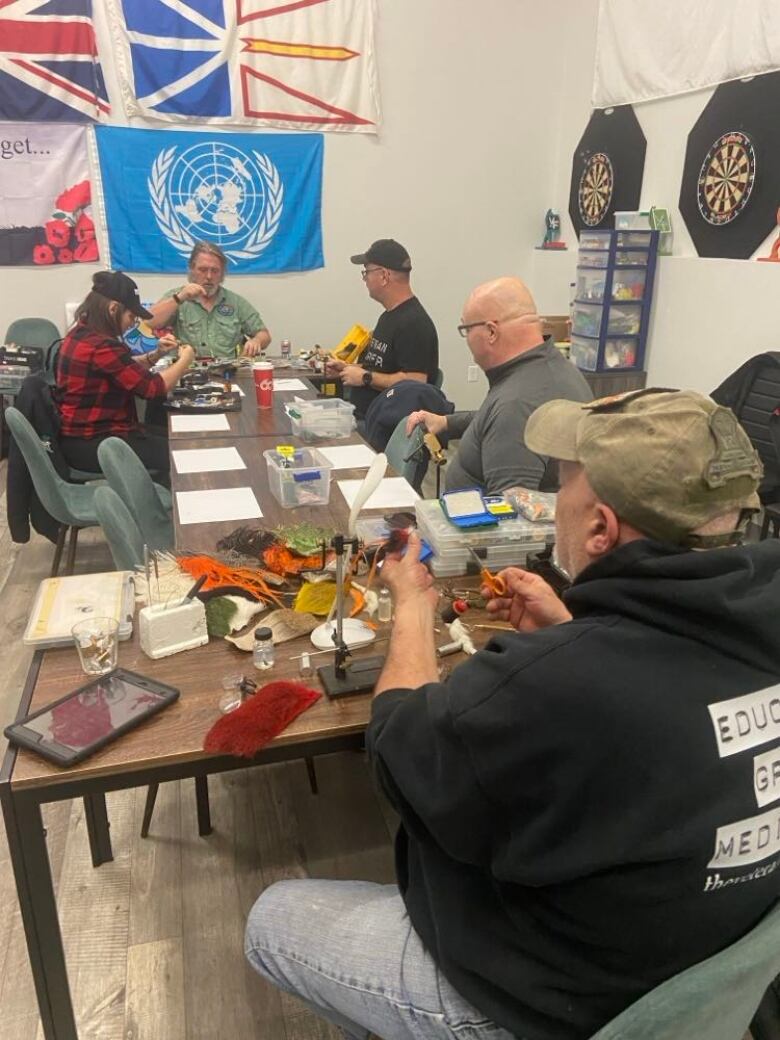Fly-fishing program for veterans casting bigger net for new members in N.L.
Program dedicated to providing rehabilitation to military veterans through fly fishing

Those of us with no military experience will never be able to grasp the full effect of what many of our veterans deal with on a daily basis, particularly once they return to civilian life.
Oh, we support them. Absolutely.
And we can probably imaginewhat theywent through and continue to struggle with, both physically and emotionally. But that's about as far as our understanding can take us.
Several volunteer programs and events across Canada aim to assist those who, as has been stated many times, "at one point in his or her life wrote a blank cheque to their country for an amount up to and including their lives."
One such program takes place Thursday afternoons in Mount Pearl during the winter.
Heroes Mending On The Fly Canada is dedicated to providing physical and emotional rehabilitation of disabled active military service personnel and disabled veterans through fly tying, fly fishing and associated activities, including education and outings.
Besides retired members of the Canadian Armed Forces, first respondersparamedics, police and firefighters are also welcome. Participants learn and enhance their trout and salmon fly-tying abilities, and when spring and summer roll around, fly-casting lessons and the occasional fishing trip are added to the mix.
Those involved in the program look forward to their weekly meetingsat the Veteran Farmer facility on Allston Street.

They're a relatively small group of a dozen or so for now, though they know there are many other veterans out there who could avail of the opportunity.
"It's a chance to sit and relax with like-minded military and first responders," said Todd Sturge of Portugal Cove-St. Philip's, a member of the 2nd Battalion of the Royal Canadian Regiment who retired in 2002 afterserving almost 15 years.
"We converse over a wide range of topics,good and bad, the ugly, some very personal. It's all part of a special bond we share, usually in confidencewith laughs, tears and anger, like a family. At the same time, we're creating a fly to mimic a real insect and hopefully catch a worthy fish on it."
Some members dealing with physical and mental conditions such as post-traumatic stress disorder immerse themselves into fly tying and fishing, Sturge said, adding that he knows all too well the feeling of having a military brother take his own life.
"The fly-tying program has enabled us to help with our mental health; it gives us a sense of creativity and accomplishment in the goal of catching fish on a fly that we've tied, or maybe even a rod they built themselves," he said.
The veteran primarily responsible for the local program is Jim Hapgood,a commander with the Lord Strathcona's Horse Tank Regiment, who retiredin 2014 after 28 years of service, includingfour tours:Bosnia in1997, Kosovo in 1999, Bosnia in 2003 and Afghanistan in 2006.

He startedthe program here in 2011, three years before retirement. As an avid angler, fly tier, rod builder and guide who has fished in different parts of the world, Hapgood was a natural fit for the program and needed no special training to get it up and running in his home province.
"I was diagnosed in 2010 with an OSI[operational stress injury], andonce I was on the mend, I wanted to do something to help others goingthrough similar issues," he said."Fly fishing has always been away for me to unwind and relax."
Hapgood also holds casting clinics, usually in late April or early May.
"The participants can put their newfound skills to use when the trout season opens in mid-May as well as the salmon season beginning in June," he said.
As for actually fishing, through programs such as Soldier Onand Wounded Warrior,Hapgood has taken participants on several excursions, not to mention the countless day trips. And it's worked quite well.

"The participants created a peer network that now get each other outfishing, which was my intention when I started it," he said.
So what, I asked, are the criteria for joining the fly tying and casting groups?
"It's pretty simple:First, the big thing [is]show up.We have tying kits, rods, even waders,all at no cost to the participants. And we are totally all-inclusive. We don't turn anybody down," said Hapgood.
I then asked about other veterans who could use the service but might not be aware of it.
"The issue is there's no actual listof veterans in the area," Hapgood said. "Our biggest hurdle has always been getting the word out that we are here and willing to help."
Inquiries about the local program can be answered by Hapgood,the program'swebsite or itsFacebook page.
Download ourfree CBC News appto sign up for push alerts for CBC Newfoundland and Labrador.Click here to visit our landing page.












_(720p).jpg)


 OFFICIAL HD MUSIC VIDEO.jpg)
.jpg)



























































































